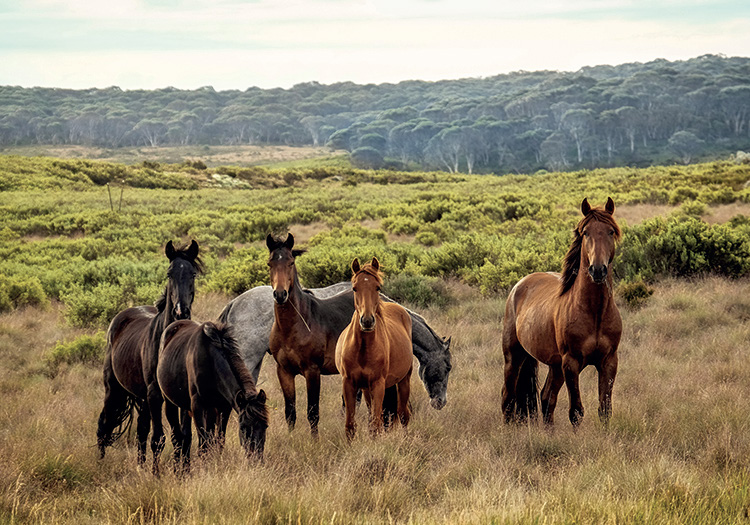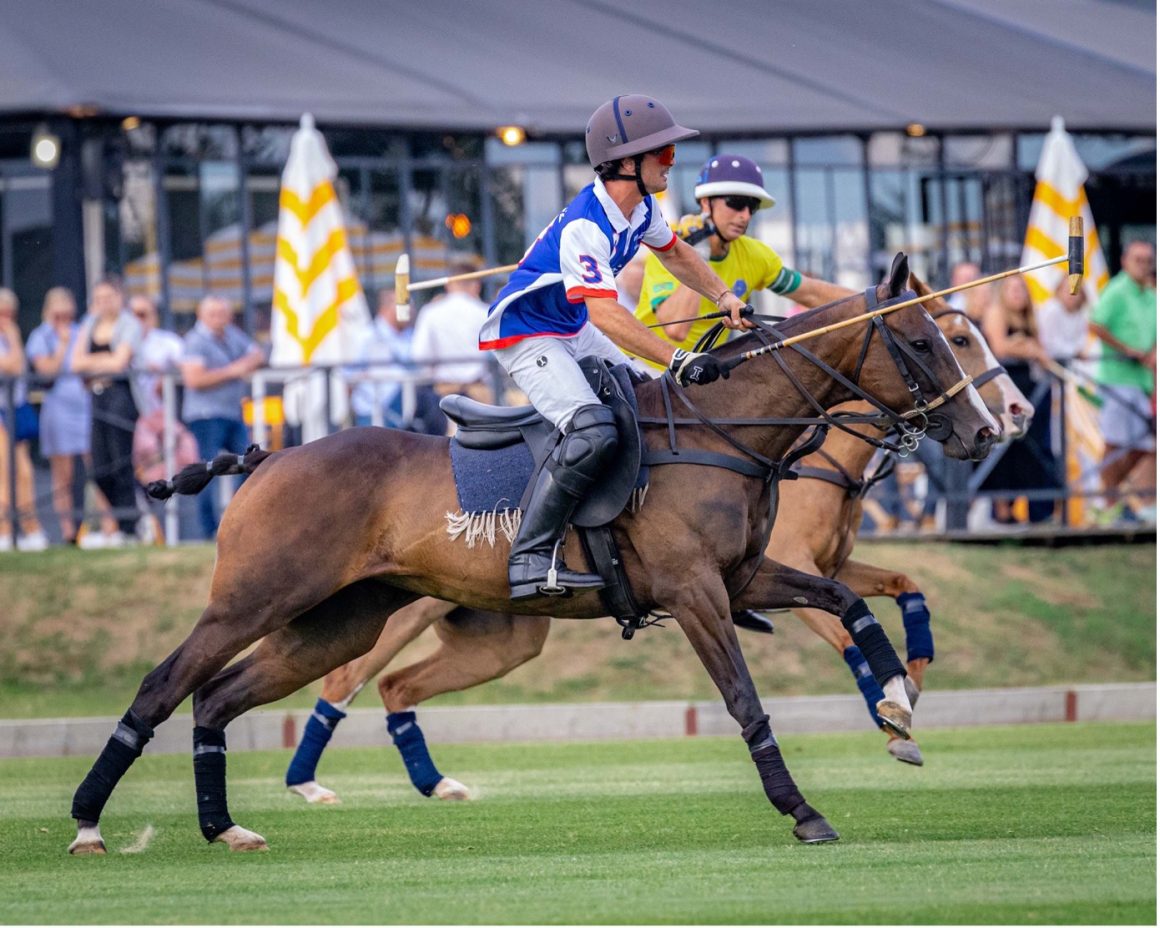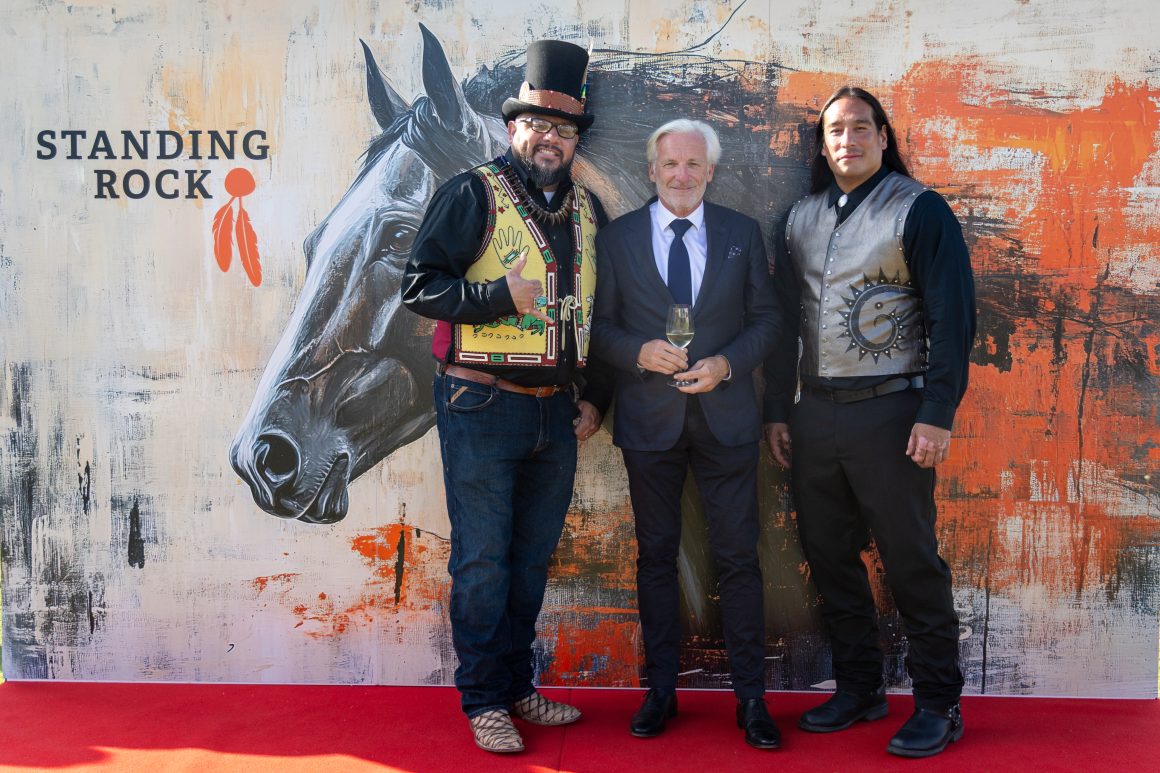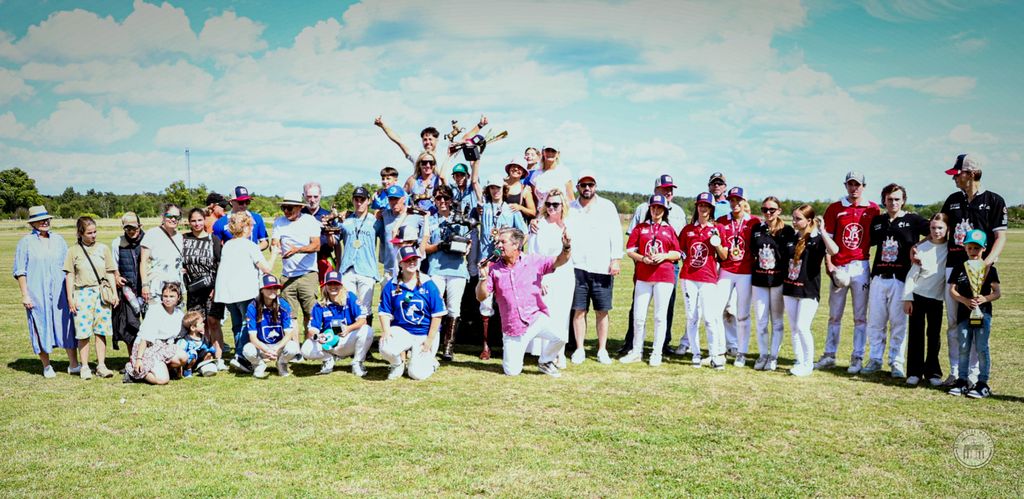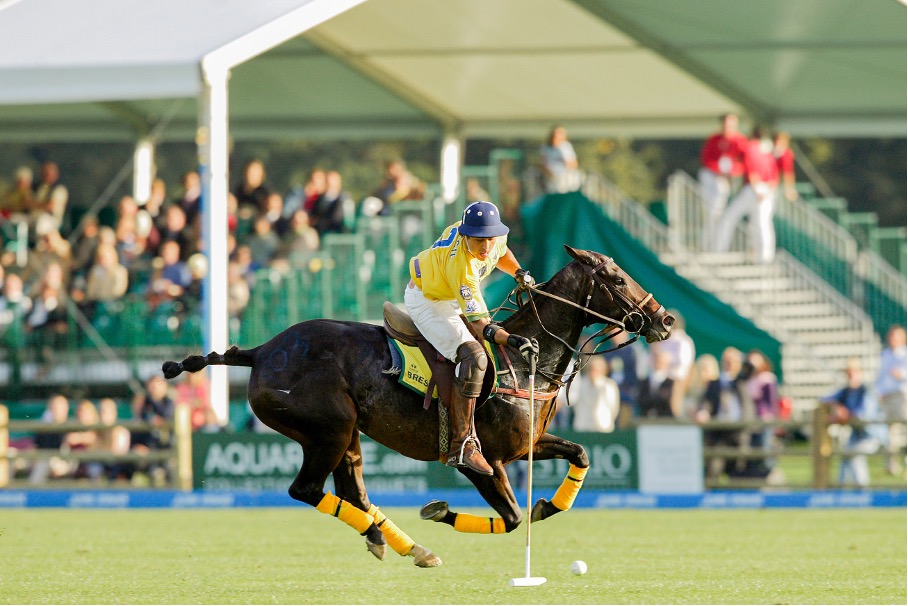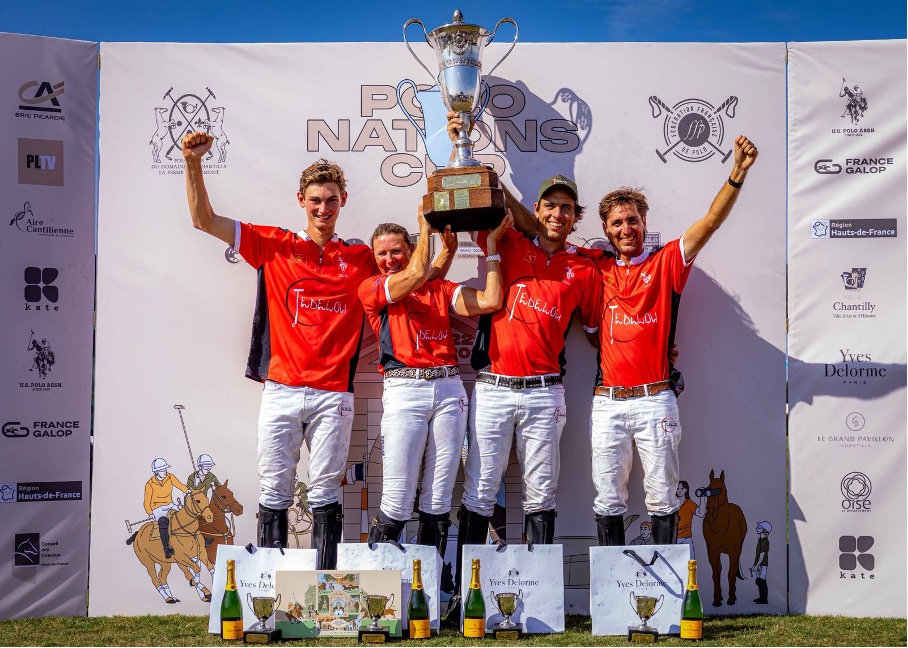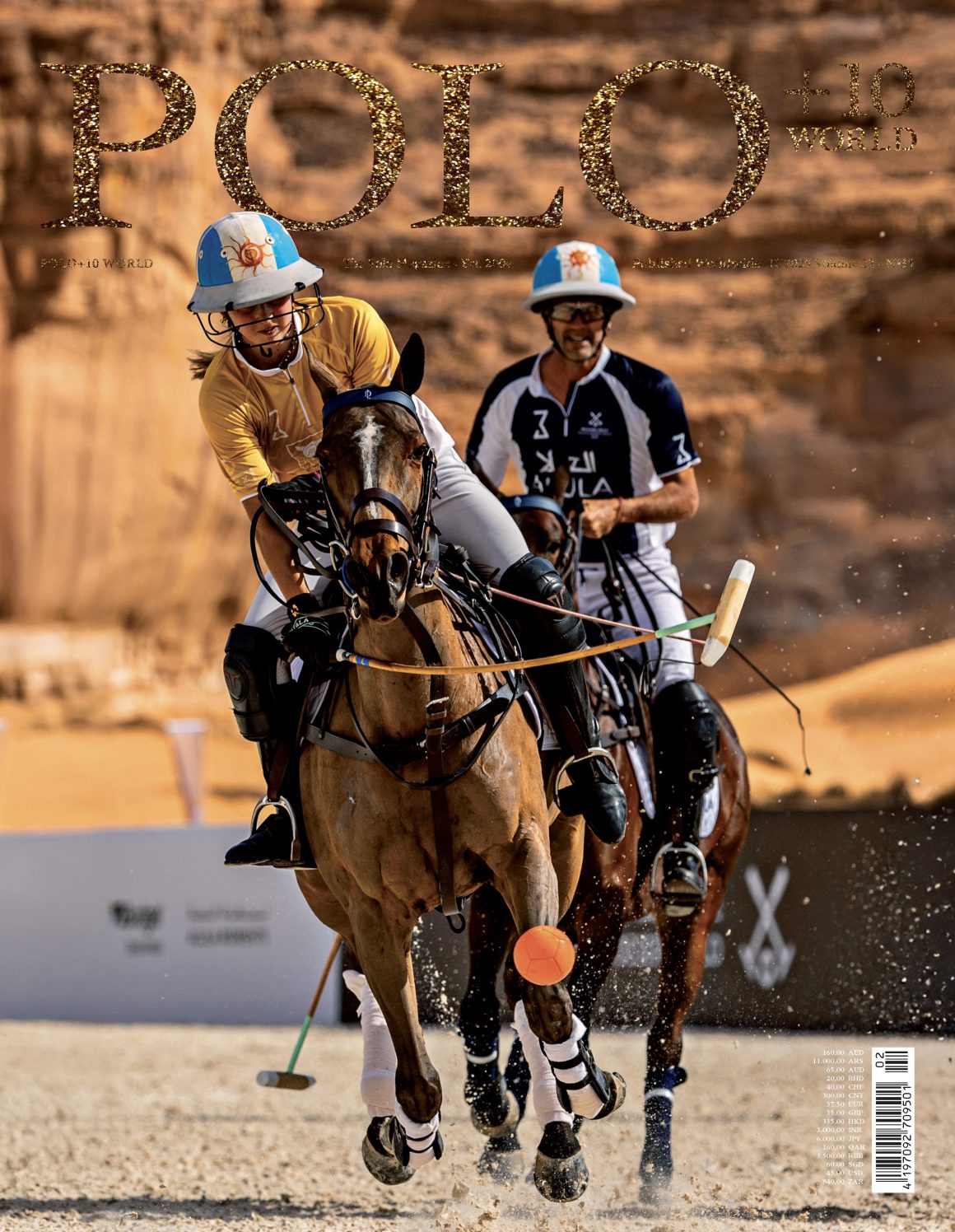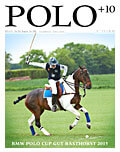When we think of healthy and performance willing ponies, feeding and training are often on the top of the priority list. However, many other factors affect the potential of our equines and these should not be neglected. In order that your ponies stay healthy throughout their lives and that you can play and win as many matches with them as possible, you should familiarize yourself with the various aspects of veterinary care, general health control, disease prevention, parasite protection and fur, hoof and tooth care.
Veterinary care
Every horse should at least receive a yearly full general check-up from a veterinarian. The musculoskeletal system, the respiratory system, the cardiovascular system, the gastrointestinal complex (including the teeth) and the reproductive tract (mares, breeding animals) should be examined in detail. If necessary, your veterinarian will carry out further examinations (blood test, fecal samples, eye examination, etc.). He or she should also verify all documents (horse passports etc.) and check the vaccination and deworming status (see below) of the individual horses or the herd.
General health control
Your ponies should be examined daily for signs of illness. You might first notice behavioral changes such as separation from herd colleagues, weariness, restlessness, lack of appetite, frequent lying / rolling or similar. Be sensitive to disease symptoms such as diarrhea / no defecation, increased respiratory rate, cough, nasal, eye or skin discharge and coat changes such as bald spots, pustules or itching. Also make sure that possible indications of musculoskeletal disorders such as lameness, protective postures, swelling / injuries to the limbs, especially the tendons, are observed. If your horse shows one or more of these symptoms, call a veterinarian.
Disease prevention
To protect your animals from serious infectious diseases, veterinarians routinely use various vaccines specially developed and approved for horses. The administration of vaccines stimulates the immune system to produce antibodies. Immunity arises and when the body is confronted with the pathogen, the immune system recognizes it and wards it off. At birth, a foal’s immune system is naive. In order to be protected from potential pathogens, in the first hours of life, the foal must absorb sufficient antibody-rich milk (colostrum) from the vaccinated mare. This protection lasts about 6 months and after this time a horse should be vaccinated. Which vaccinations are required and important for your horses depends on the region in which you live, on the areas that your ponies will travel to and also of their use (broodmare, sport or leisure horse). Ask your vet for advice.
Parasite control
Endoparasites
Strongyles, roundworms, tapeworms, pinworms and warble grubs are the parasites that most often infect the equine gastrointestinal tract. Small strongyles (Cyasthosomes) are now mostly encountered, while large strongyles (esp. Strongylus vulgaris) are the most dangerous for your ponies. The ingestion of the parasite eggs or larvae mostly takes place during grazing. The parasites go through various stages of development, both outside and inside the horse’s body. The degree of infestation, the age of the horses (younger ones often are more susceptible to infestation) and the type of parasite essentially influence the expression of symptoms. These can result in irritation of the stomach or intestinal mucosa, blood loss, impairment of nutrient absorption from the intestine, life-threatening occlusive colic or intestinal infarction and much more. Some ponies can be asymptomatic despite carrying a worm burden. However, since they still excrete eggs and thus contribute to contamination of the environment, every horse should be monitored for infestation. Proper care of the pasture is also important (regular removal of manure, mowing and loosening up the turf, alternating pasture with e.g. cattle or sheep), the horse number per pasture should not be too high and, if possible, the horses should be organized by age groups.
Your veterinarian can work out an appropriate deworming program for your ponies. In order to deworm them in a targeted manner and to minimize the development of resistances of the parasites towards the available products it is recommended to base these programs on regularly performed fecal tests.
Ectoparasites
Flies, biting midges, mosquitoes, ticks and many more, can lead to general signs, especially in very sensitive ponies, such as restlessness (tail swishing, stomping etc.), reduced feed intake, growth disorders and reduced performance. Ectoparasites can also transmit or harbor various diseases that can be dangerous for both your pony and you (e.g. equine infectious anemia, equine encephalomyelitis viruses). Wounds can become contaminated by fly infestation and subsequent infections can occur. Various insecticidal ointments and sprays, as well as fly masks and blankets can protect your four-legged friends. It is also important to keep the surroundings of the horses clean, to regularly check the animals for fly damage and for tick infestation and to properly and regularly dispose of the horse manure.
Grooming
The skin is your horse’s largest organ and daily grooming and brushing should be routine. Most ponies enjoy this procedure. Dirt, old skin flakes and sweat, which can be a potential substrate for bacterial and fungal growth, are removed and minor injuries, scratches and bumps can be identified and treated immediately. Washing your ponies too often with horse shampoo can lead to dry out the skin and fur and should be avoided. After washing, use a sweat scrapper to dry your horse’s fur. Avoid cold showers for heated ponies during hot outside temperatures and make sure that a horse solarium is available in winter or refrain from full body showers during low outside temperatures.
Hoof care
Correct footcare is one of the basic requirements for the optimal and long-term use of a sport horse. Horse hooves grow continuously and have to be trimmed or shod about every 6-8 weeks (warmer temperatures favor hoof growth). Whether a horse needs shoes depends on several factors, such as the type of use, orthopedic peculiarities and any previous illnesses of the musculoskeletal system. When working horses on hard and rough surfaces, shoes protect the hooves from excessive wear and tear. They can also give the horse better grip on certain surfaces (grass, snow / ice) by, for example, using studs or spikes. This is an important aspect especially in the polo sport. Without the right grip, the ponies can hardly follow the fast pace of the match.
Trimming and shoeing of the hooves should be done by an experienced farrier or veterinarian. Especially if your pony has orthopedic features, such as distal limb abnormalities or the tendon(s) or bony distal skeleton have previously been injured, the farrier should closely work together with the treating veterinarian.
The hooves should be picked and cleaned daily and before and after training. Check the sole and frog for possible injuries and changes. The shoes should also be controlled for wear and correct fit and the nails for appropriate tightness. Many hoof care products and ointments are available on the market. It is advisable to consult the trainer, farrier or veterinarian and to design hoof care individually for each horse. Because, as an old saying goes, “No hoof, no horse”.
Dental care
The equine dental cavity has some peculiarities. Horse teeth grow and wear out continuously. This wear is not always even, and sharp edges or hooks can form. In addition, the upper jaw is anatomically wider than the lower jaw. Because of this incongruity, horses tend to develop tips outside in the cheek area of the upper jaw, and inside, along the tongue, in the lower jaw. How often the teeth have to be examined and if necessary floated (smoothed / rasped) also depends on the feeding and the use of the animals. Basically, the teeth of horses that have access to a lot of roughage (pasture, largely physiological wear off of the teeth) should be checked at least once a year. Geriatric and young horses, as well as horses that eat a lot of concentrates (pellets, oats) and little roughage (hay, pasture grass) should go to the dentist twice a year. If your horse has problems eating (e.g. food falls out of the mouth while chewing (quidding)), it eats reluctantly, it has bad breath (gum disease, rarely caries), it hesitantly takes the bit into its mouth, it reacts to the bit while riding or it does not accept the bit, this can indicate dental problems and you should consult your veterinarian.
Many factors influence the development and performance of a horse and a good interaction and regular exchange of information between grooms, trainers, riders and the respective veterinarians and farriers are essential to guarantee your ponies a long and successful career. Good luck and health for the rest of the 2020 season and keep safe!
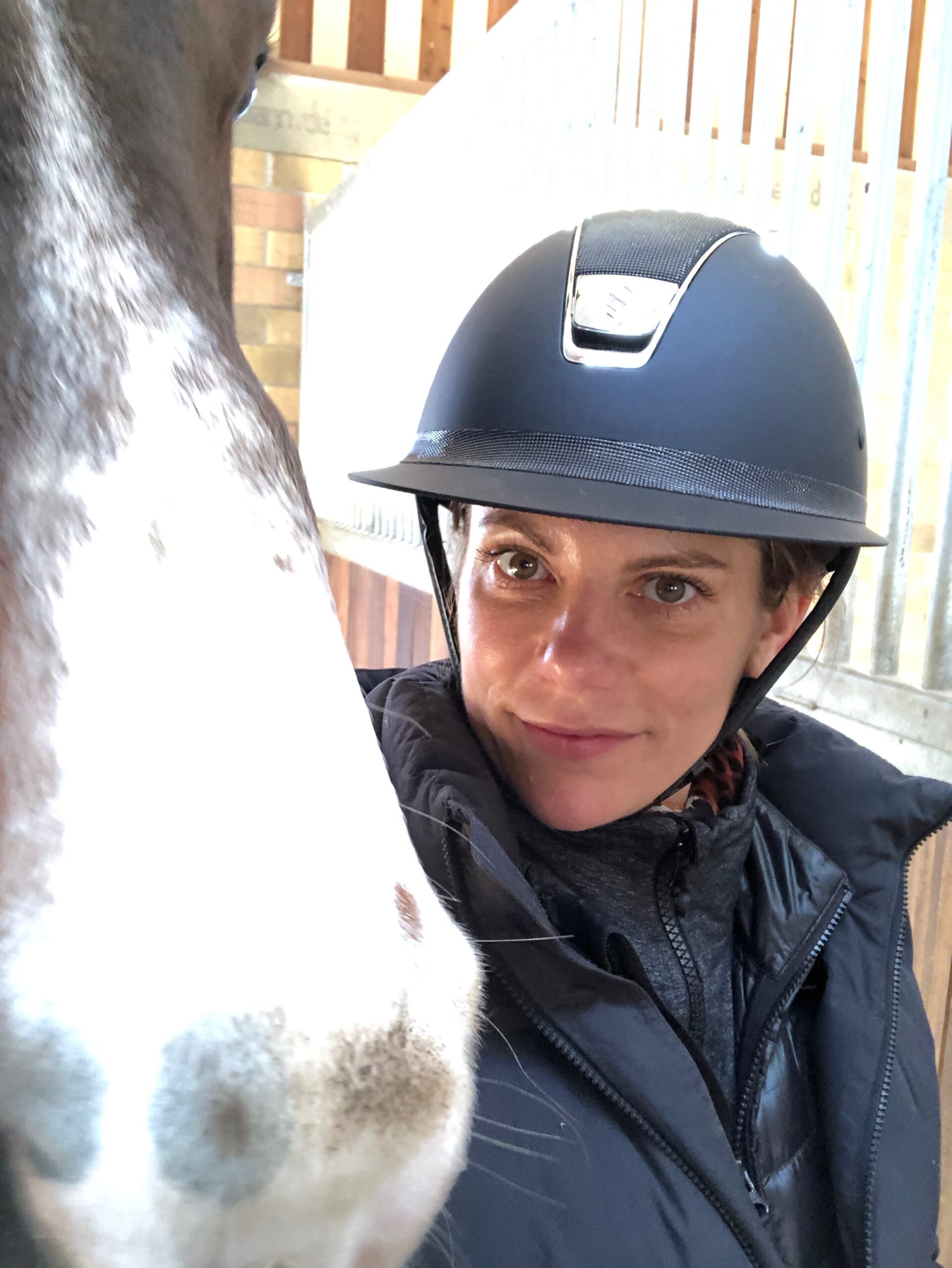
Dr. med. vet. Lena Horn is a medical consultant, veterinarian and since May 2019 editorship member and veterinary adviser of POLO+10.
lena@poloplus10.com


